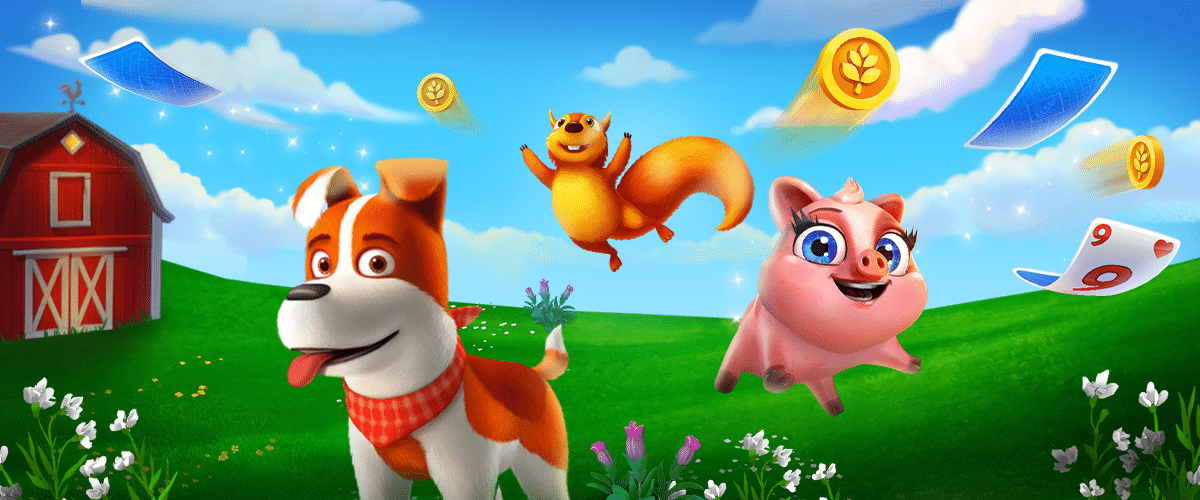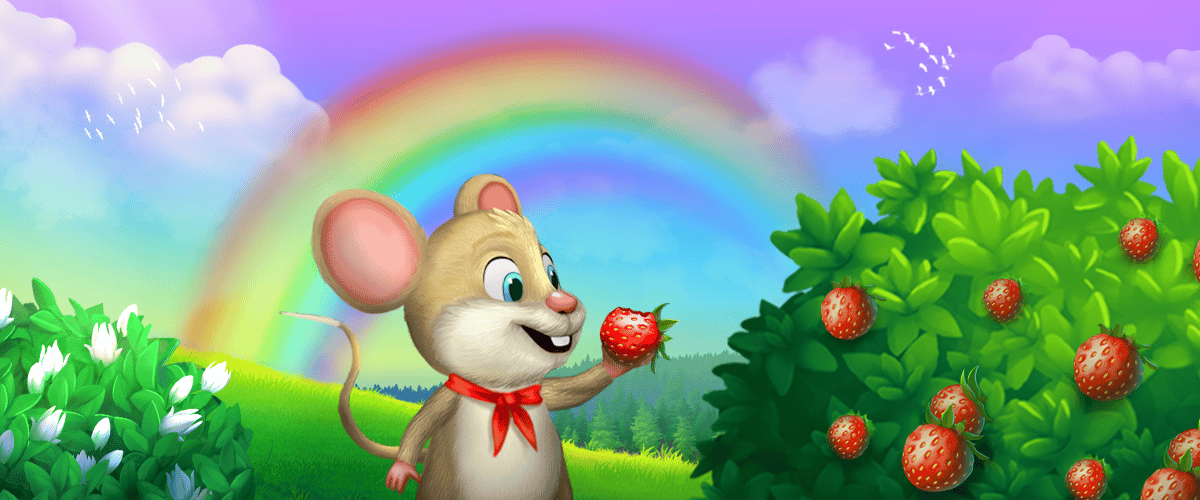Blog
Solitaire, the timeless single-player card game, has entertained millions for decades. But beyond passing the time, can playing Solitaire actually boost your brainpower?
Recent research suggests that Solitaire may do more than entertain – it can stimulate the mind, improve memory, and help protect against cognitive decline.
How Solitaire Engages the Brain
Playing Solitaire isn’t just about moving cards – it’s a mental workout that activates several key areas of your brain. Each game requires you to remember card positions and sequences (boosting your memory), maintain focus as you plan your next moves (enhancing concentration), and think ahead to develop winning strategies (sharpening your problem-solving and analytical skills). By combining these cognitive demands, Solitaire offers a simple yet effective way to keep your mind active and engaged.
Discover 10 surprising ways Solitaire can benefit your brain and mental well-being.
1. May Support Memory and Delay Cognitive Decline
Solitaire requires remembering card positions, suits, and sequences, acts that work by activating your working memory. Engaging in this mentally challenging activity may help maintain cognitive function, especially as we age.
Did you know? A study published in the New England Journal of Medicine found that regular participation in card games was associated with a reduced risk of dementia in older adults (Verghese et al., 2003).
2. May Promote Focus & Concentration
Solitaire demands sustained attention, which includes side quests and levels that get increasingly challenging as you play along. This immersive focus may help retrain your brain to resist distraction, offering a moment of calm in our ever-noisy world.
One study found that in senior citizens in particular, regular cognitive leisure activities (like card games) were associated with a 63% reduced risk of dementia, suggesting a strong link between card games and enhanced focus, memory, and cognitive engagement (New England Journal of Medicine, 2003).
3. Encourages Strategic and Analytical Thinking
Winning in solitaire is about thinking ahead, managing resources (like boosters), planning outcomes, and choosing the best next move. Here are some examples of how you will need to use strategic and analytical thinking while playing Solitaire:
· Moving a card from a pile might open up new moves or block potential ones.
· Deciding when to use cards from the deck vs. the tableau involves forecasting.
· Develop instincts about which strategies are most effective
· Identify which cards to move or hold back.
· Decide how to free up face-down cards efficiently.
· Sometimes, the best move is to wait or hold back a play until the timing is right.
Solitaire fosters a blend of analytical and strategic thinking by challenging players through the game’s challenging mechanisms. These cognitive skills may teach us to strategize beyond the game and overlap with real-world strategic thinking and problem-solving.
4. Builds Patience and Emotional Regulation
Solitaire rewards thoughtful pacing over impulsive actions. Waiting for the right card or move helps develop patience, a rare but essential skill in today’s instant gratification culture.
At Solitaire Grand Harvest, a modern version of the classic Solitaire, you’ll be rewarded simply by waiting every 60 minutes for the next harvest. Additionally, levels are not time-based – which means that careful and patient decision-making can really make a difference between winning or losing a level.
Act impulsively is easy, but great players know when to hold back. Solitaire may subtly train your brain to assess risk, manage resources, and make thoughtful decisions, building long-term self-control.
5. Strengthens Self-Control & Discipline
A scenario in Solitaire (specifically Klondike Solitaire, the most common version) that requires self-control is when you can make multiple moves. Still, the best strategic move is not the most immediately satisfying one. For example:
Scenario:
· You draw a red 5 (♥️5) from the deck, and you have: A black 6 (♣️6) on the tableau that it could go under (which feels good because it moves a card and opens up more cards).
· But you also see that moving the red 5 will block you from drawing a crucial black 2 (♠️2) on the next draw from the deck, which you need to move your ♠️Ace to the foundation.
Self-control required:
Instead of playing the 5 immediately (which is tempting), you stop and think:
· “Will this move help me win later?”
· “Should I wait and go through the draw pile again to get that black 2?”
You resist the urge to make a flashy move and hold off to keep better cards in play for later. This kind of delayed gratification is a key moment where Solitaire becomes a test of strategy over impulse, and that’s where self-control really matters.
6. Promotes Relaxation, Mindfulness & Flow
Beyond cognitive effort, solitaire may offer a calming and meditative gameplay experience. The repetitive motions and quiet logic of the game can create a sense of focus that feels restorative.
Many players describe entering a “flow state” while playing, where time passes quickly and the mind feels absorbed. This can contribute to a sense of relaxation and mental clarity. Beyond cognitive effort, solitaire may offer a calming and meditative gameplay experience.
7. Triggers Reward Centers in the Brain
Each successful move or win may release small bursts of dopamine, the brain’s reward chemical. This gives you a sense of accomplishment and can gently lift your mood, especially after a tough day.
One landmark study found that engaging in gameplay correlates to dopamine release in the brain’s reward circuitry (Koepp et al. 1998).
8. Offers Low-Stress Decision-Making Practice
Every move is a decision: when to act, when to wait, how to handle uncertainty.
These moments offer a low-pressure way to improve judgment, adaptability, and resilience – skills you can apply outside the game.
9. Supports Seniors and Children Alike
Solitaire can be especially beneficial for older adults, offering a way to stay mentally active and socially engaged. In fact, some studies have demonstrated that card games may help delay the onset of dementia (Verghese, J., et al. (2003).
Solitaire may teach children independence, patience, and problem-solving without the overstimulation of flashy screens.
10. Encourages Independence & Accessibility
Solitaire can foster self-reliance. Since you play alone and rely only on your decisions, it may build confidence and a sense of personal accomplishment. It’s also simple, quiet, and accessible on nearly any device, perfect for introverts or anyone seeking a peaceful brain workout.
BONUS: It Can Be Social, Too
While often played solo, Solitaire can be a great conversation starter or part of friendly competitions and community challenges online. Places like senior centers or family game nights often include Solitaire in card game rotations, making it a quiet but social bridge.
Other modern versions of the game, such as Solitaire Grand Harvest, even have tournaments, worldwide online communities, and the ability to team up in the game.
How Does Solitaire Compare to Other Brain Games?
Solitaire is a top brain game, along with Sudoku, chess, and crossword puzzles. Unlike those, it combines strategy and relaxation without requiring advanced math or vocabulary, making it more accessible.
| Game | Strategic Thinking | Relaxing | Social Potential | Accessibility |
| Solitaire | ✅ Yes | ✅ Yes | ✅ Moderate | ✅ High |
| Sudoku | ✅ Yes | 🚫 No | 🚫 Low | ✅ High |
| Chess | ✅ High | 🚫 No | ✅ High | 🚫 Moderate |
| Crosswords | ✅ Moderate | ✅ Yes | 🚫 Low | ✅ High |
Final Thoughts: Can Solitaire Stimulate Your Brain?
Solitaire isn’t just a way to pass time – it can be a tool to strengthen and stimulate your mind. Whether you aim to stay sharp, relax, or just have fun, Solitaire offers a unique blend of stimulation, meditation, and fun.
So, shuffle the deck, take a breath, and give your brain something enjoyable to work with.
Sources:
· Koepp, M J et al. “Evidence for striatal dopamine release during a video game.” Nature vol. 393,6682 (1998): 266-8. doi:10.1038/30498
· Verghese, J., et al. (2003). Leisure activities and the risk of dementia in the elderly. New England Journal of Medicine.
New to Solitaire? Check out our guide on how to play Solitaire for the basics.
Frequently Asked Questions
Does Solitaire really make you smarter?
While Solitaire won’t turn you into a genius overnight, research shows that regular participation in card games can help maintain cognitive function and delay cognitive decline.
Is Solitaire good for seniors and children?
Yes! Solitaire offers benefits for all ages, helping seniors keep their minds sharp and teaching children patience, independence, and problem-solving.
Can Solitaire be played socially?
Absolutely. While Solitaire is a solo game, it can spark friendly competition, online tournaments, or serve as a relaxing group activity.








